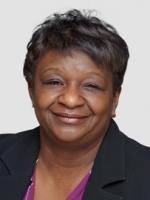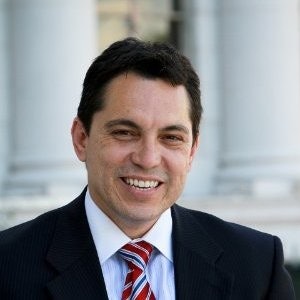Theodore M. Shaw said he remembers sitting inside the Supreme Court on June 26, 1978, when the decision on Regents of the University of California vs. Bakke was read. The case called into question affirmative action admissions decisions at the University of California Medical School at Davis, and the ruling, in essence, gutted the race-conscious practice.
 Theodore M. Shaw, Julius L. Chambers Distinguished Professor of Law and director of the Center for Civil Rights at the University of North Carolina at Chapel Hill.
Theodore M. Shaw, Julius L. Chambers Distinguished Professor of Law and director of the Center for Civil Rights at the University of North Carolina at Chapel Hill.
Now a similar case is being brought to the Supreme Court. On October 31, the nine justices will hear arguments in Students for Fair Admissions (SFFA) vs. President and Fellows of Harvard College and SFFA vs. UNC. These two cases will decide the future of race-based admissions considerations at these postsecondary institutions and will likely have nationwide ramifications for similar policies.
Race-based admissions practices do not allow admission to students solely based on their race. Rather, the policies allow the consideration of race as one aspect of a student along with the rest of their portfolio, including grades, test scores, or even admissions essays.
Shaw and other lawyers at the American Association for Access, Equity, and Diversity’s (AAAED’s) 48th annual national conference said they feel the Supreme Court is likely to rule in favor of SFFA due to its present conservative sway.
Moderated by Dr. Jamal Watson, the panel discussed how this ruling will negatively impact students of color and the classroom experience. The panel agreed that the suggested substitute for race-based admissions considerations, class and socio-economic status, will likely end up benefiting white students more than students of color, and that the ramifications of this ruling can go beyond a university’s walls.
“If we pursue race-blind, class-conscious policies, given the demographics of this country, we will see more white working class and poor people admitted,” said Shaw. “But there’s no guarantee we will see or continue to see the numbers of Black and Brown students admitted as we’ve had under affirmative action or diversity policies.”
 Carol R. Ashley, lawyer and one of the authors of the AAAED amicus curiae brief filed before the U.S. supreme court in support of race-conscious admissions practices.
Carol R. Ashley, lawyer and one of the authors of the AAAED amicus curiae brief filed before the U.S. supreme court in support of race-conscious admissions practices.
“The reality for many institutions, educational and beyond, is a concern that all the good diversity and inclusion work done to date (and more that is needed) is threatened by this potential decision,” said Ashley. “Especially in the last three years, companies have begun to understand what diversity means to their employees, not only in the work they do with each other, but globally.”
But in order for diversity to be a strength, it needs to reach a critical mass, Ashley said, and race-blind admissions will make it very difficult for institutions to ensure their students of color are not alone or tokenized on campus. Onlyness can be damaging to a student of color’s mental health.
“As someone who went to a predominately white institution, there are consequences when you are the only—it’s truly traumatic to be isolated,” said Ashley. “As admissions, if you cannot take that into consideration and build a campus where you have a critical mass to have different perspectives, it effects your educational environment, social environment—it can affect people’s psyches.”
David G. Hinojosa, director of the Educational Opportunities Project at the Lawyer’s Committee for Civil Rights Under Law and leader of a team representing students of color and alumni defending affirmative action admissions, said by ignoring race and pursuing a “color-blind” admission policy, universities will struggle to create vibrant learning spaces.
 David G. Hinojosa, director of the Educational Opportunities Project at the Lawyer’s Committee for Civil Rights Under Law and leader of a team representing students of color and alumni defending affirmative action admissions.
David G. Hinojosa, director of the Educational Opportunities Project at the Lawyer’s Committee for Civil Rights Under Law and leader of a team representing students of color and alumni defending affirmative action admissions.
Hinojosa and Ashley said that to separate race from admissions would be akin to separating race from their own identities and experiences in America.
“The idea that someone [in admissions] in a school will say, well, her experience growing up in that city as a Black person is separate from her—that is, in my mind, something universities can’t do. It is inseparable,” said Ashley. “It’s removing so much of the context of what we actually live in day to day. It’s not true that I can walk into different places, and someone does not see I’m a Black woman—it’s not feasible. There’s a disconnect.”
Liann Herder can be reached at [email protected].



















